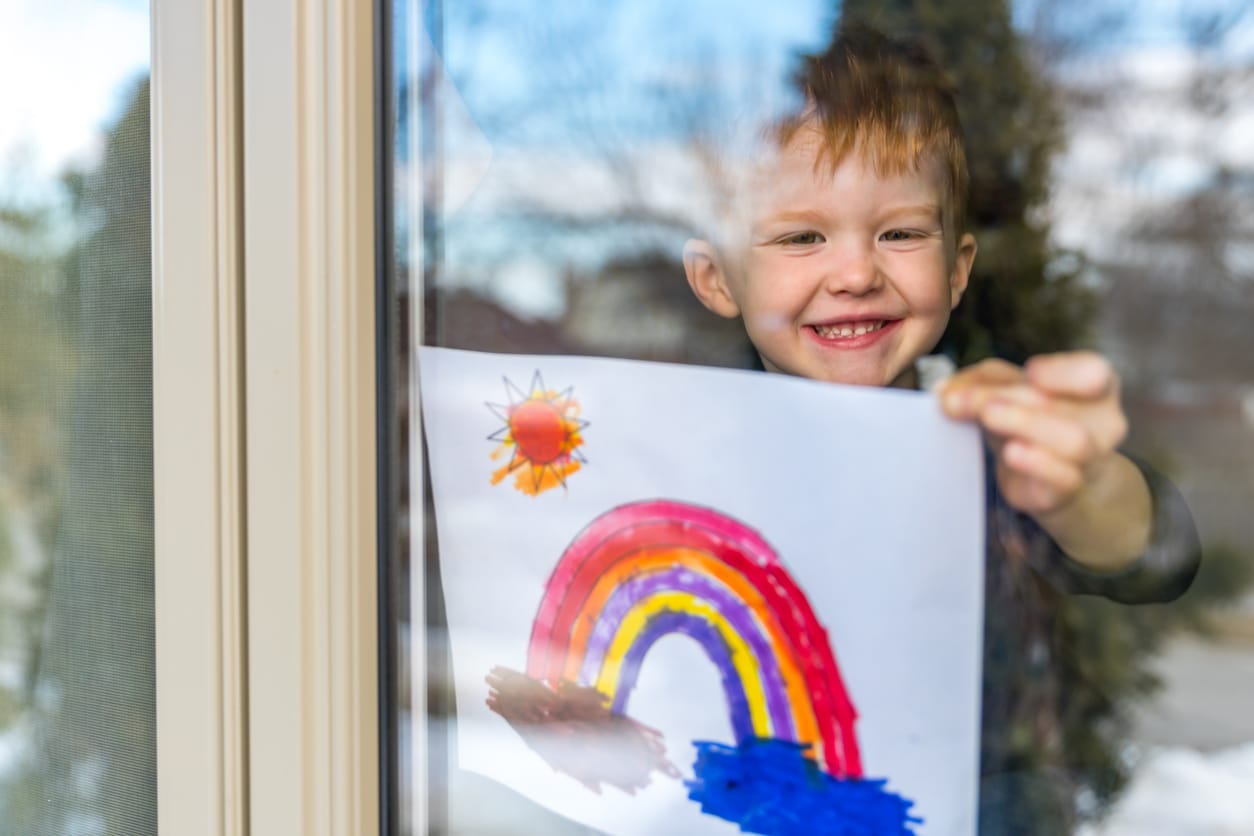
How do we begin explaining COVID-19 to our kids? Coronavirus is all people are talking about these days. Parents are concerned. We’re worried about our friends, family, and the impact this will have on our children. While we’re doing the best we can, sometimes it’s helpful to have ways we can reassure our children and help them cope with this crisis that seems to hit a little closer to home every day.
Helping Children Cope
Many conversations now revolve around numbers and cases. Stomachs are churning, wondering what new developments we will hear about today. Despite knowing that our friends and neighbors are doing all that they can, it can be anxiety-inducing.
Some children might be too little to understand what’s going on and how it will impact them. Nevertheless, they realize that they now have to wash their hands more often and their families are paying a little more attention to the news. They might not be able to go to school, church or see friends as part of their daily routines anymore. So what is the best way to provide comfort and perspective for our children? Here are a few ways that might help children cope.
Explain COVID-19 to Kids in a Way They Will Understand
We all know how to adapt our language to what is age-appropriate for our children. But most grown-ups don’t even understand the full impact of what is happening on a national or global scale. Try letting your child lead. Ask them what they think coronavirus is. This will give you a better idea of what they know or what information they’ve absorbed. Here are some responses that might help with their comments or questions.
- Illness: Explain that this is a virus that makes people feel sick. Also, explain how viruses get into our bodies. This is a great opportunity to discuss the importance of good hygiene. End on a positive note by saying that there are doctors and experts all around the world trying to learn about it and keep us safe.
- Quarantine: Discuss how people who are sick are being asked to quarantine and what this means.
- Social Distancing: Try explaining how people shouldn’t come in close contact with each other and we should stay at home as much as possible. Ask them for ideas on what you could do instead of hugs and hi-fives to people that don’t live in your home.
Limiting Social Media and News for Older Kids
Set a limit on the amount you AND your kids spend on social media, news sites, and discussing the uncertainty of the COVID-19 pandemic. It is important to stay informed and seek out information–for everyone’s safety. However, conflicting news reports, the constant 24-hour news cycle, and the constant narrative of “what if” can bring on anxiety for many. Use reliable resources and share new information with your older children when it comes about. Teach them to use the CDC and World Health Organization websites. Show them how to find reliable information at the source.
We all need a brain break. With kids at home from school and parents trying to multi-task and be vigilant caregivers, our mental health and wellbeing are just as important as our physical health. Create space in the day and for your family to enjoy nature, have time together, and share meals without the discussion of the latest Coronavirus headlines.
Explain Why Events Are Being Canceled
Remind young children that school, church, and community event cancellations have nothing to do with them. It’s all part of us working together as a community to keep each other safe. For older children, provide a little perspective by discussing the benefits. There are many benefits we’re already experiencing by social distancing and shelter in place regulations. If older children can see the effects, they might realize how they can play their part for a greater positive impact.
Remind Your Children to Listen to Caregivers
Whether it is in relation to a family member that is helping in your home or a teacher online, reinforce that it is important to follow instructions. Lead by example when it comes to wearing masks, covering your mouth, social distancing, and washing your hands. It is all to keep them and others safe.
If you are concerned about signs and symptoms of COVID-19, have questions on how to get tested for Coronavirus, please visit mainstreetfamilycare.com for more information. We are open 7 days a week. You can walk in any time without an appointment to be evaluated by a provider.






